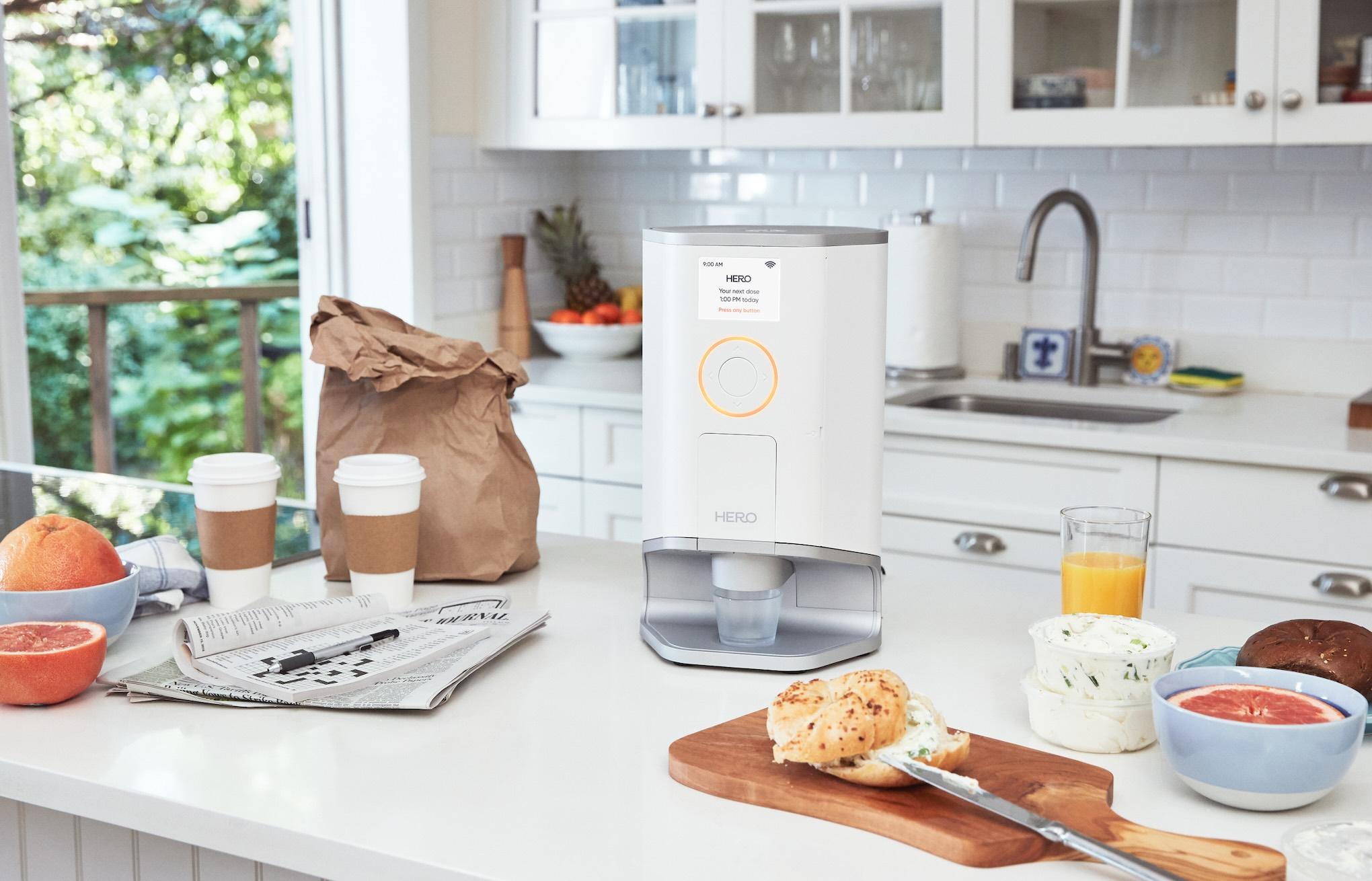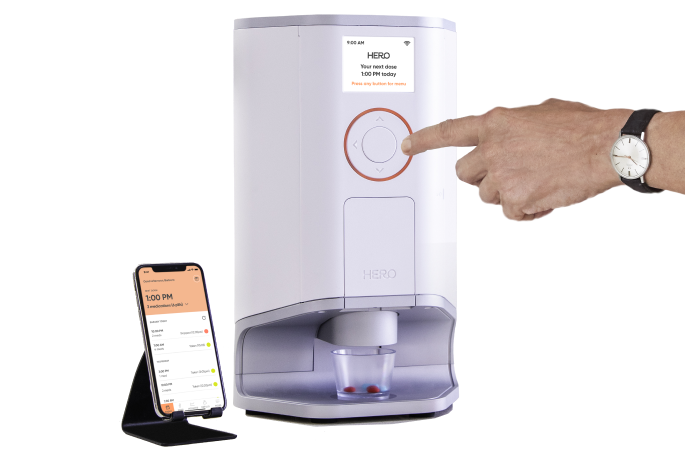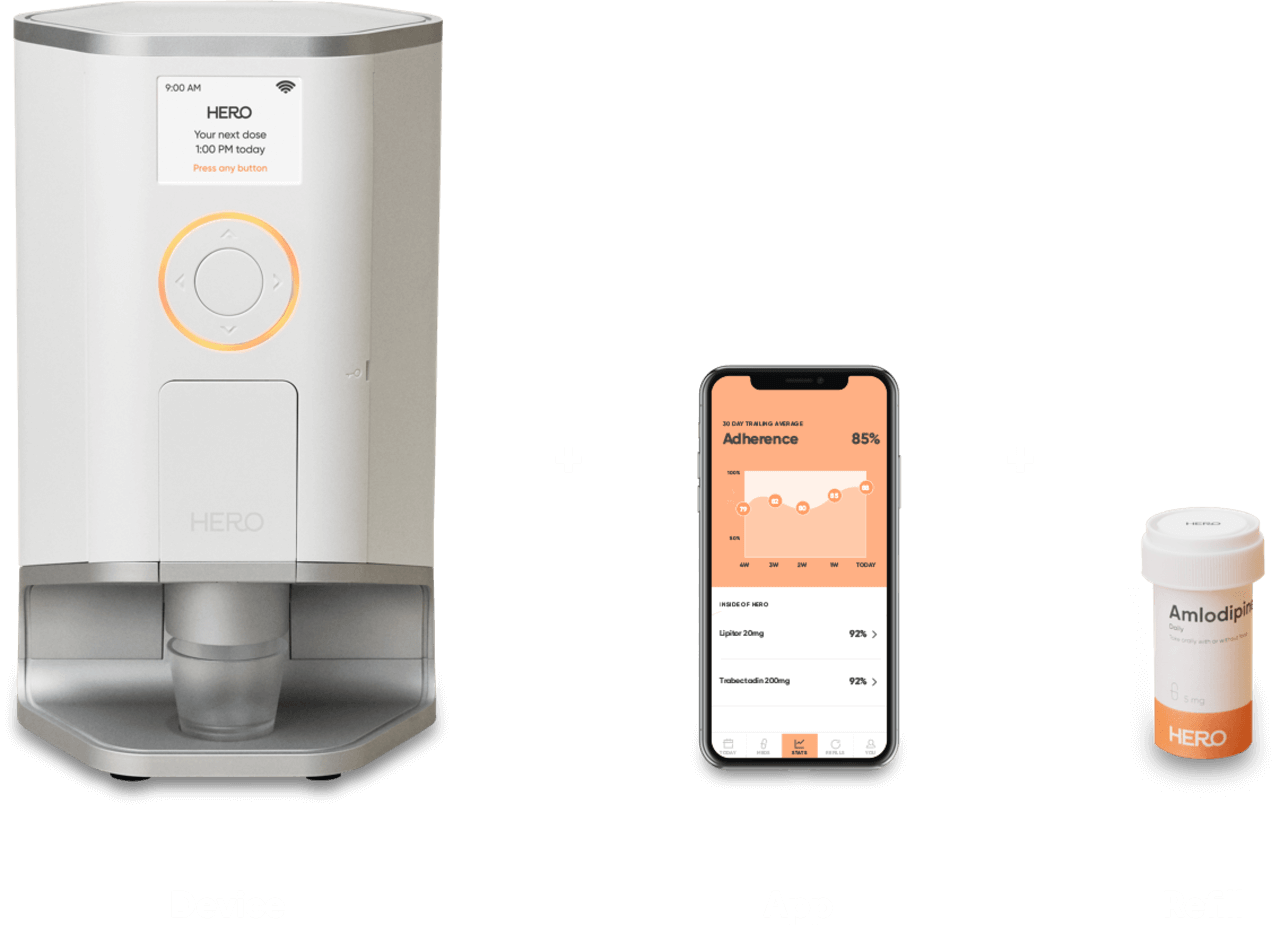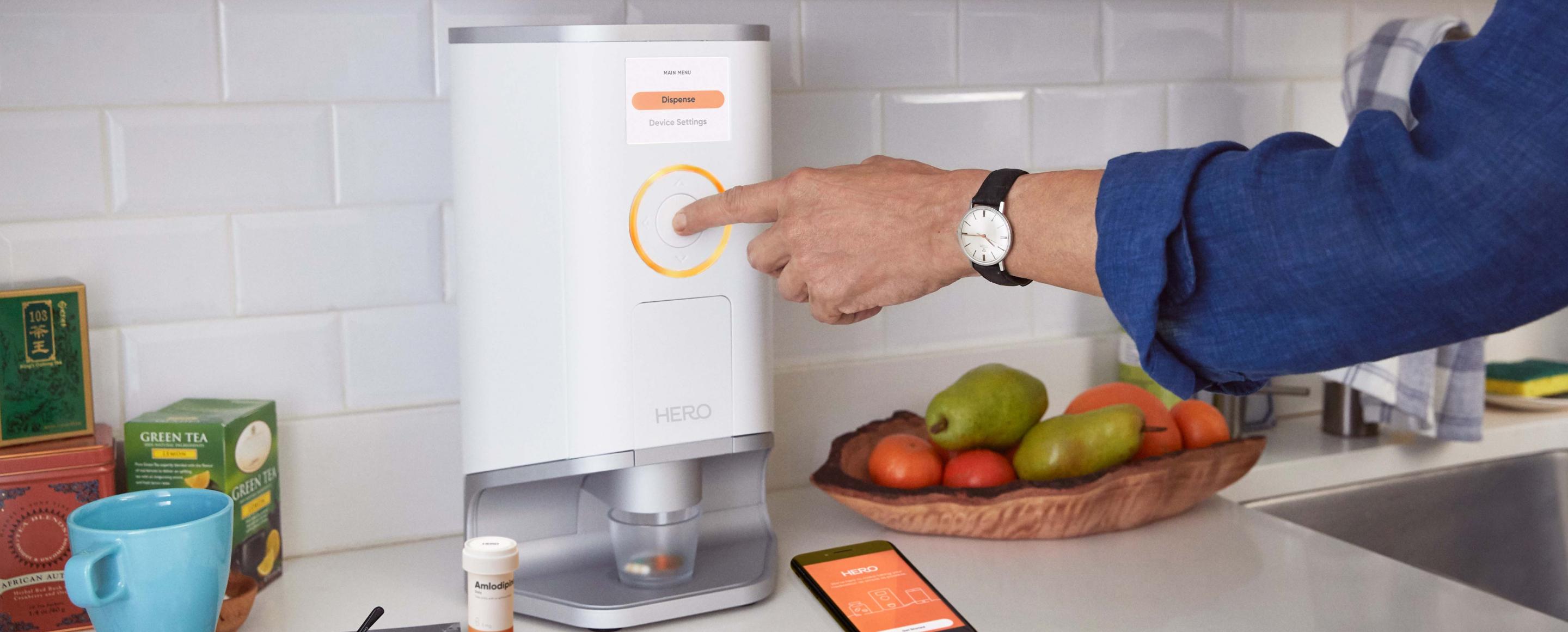Pill Dispensers: Can You Trust Them With Your Health?

Taking the right medications at the right times can be important – even essential – to your health and wellbeing. If this is the case for you, you need to trust that your medication is going to be right every time. One way people manage their important medications is by using an automatic pill dispenser – but can you trust them when it matters most?
What is an Automatic Pill Dispenser?
Automatic pill dispensers store and dispense medications based on your medication schedule. Whether that’s nine pills in the morning, four every morning and two at night or a much more complicated regimen, you simply program the dispenser according to your schedule, and the machine will alert and dispense your pills accordingly. They can take the place of pill bottles, pill boxes and other pill organizers that require you to sort and collect the correct pills at pill times.
Some pill dispensers are battery-powered, while others use power cords and connect to WiFi or a cellular service. Choosing between these comes down to your personal preference, your comfort with technology and, in some cases, how many pills you need it to dispense.
Why Choose an Automatic Pill Dispenser?
In one word: reminders. With their lights, chimes and other notifications, automatic pill dispensers make it easy to remember to take your medications. They help you get the correct dosages, and because they deliver on your schedule, you’re less likely to take a double dose if you forget that you’ve already taken your medication.
Because medication management is key to staying healthy and safe, automatic pill dispensers can also help seniors stay independent. If you live alone and your family doesn’t live close by, having a pill dispenser might help you avoid the cost of needing to hire a home health aide to remind you to take medications. Using an automatic pill dispenser is an especially helpful way to maintain your health during coronavirus, while social distancing keeps even nearby families apart.
Types of Pill Dispensers
For a full comparison of automatic pill dispensers, check out this post on pill storage solutions. For the purposes of this article, here’s a quick overview of the two types of dispensers on the market:
Low-Tech Dispensers
On the lower tech end, battery-operated pill dispensers are easy to use, portable and relatively secure. You’ll find options that can dispense anywhere from nine to 18 pills, caplets or tablets at a time, several times per day. Reminders to take your dispensed meds typically come in the form of a beeping alarm and a flashing light.
Each option also has some sort of security measure, such as a safety latch with a key. But the real benefit of this kind of pill dispenser is its portability; if you take a lot of medications and travel frequently, this type of pill dispenser is ideal for you.
Smart Dispensers
Smart pill dispensers use an internet connection to schedule, dispense and track the supply of medications so you know when to order refills. Their storage capacity varies from 28 days of single doses to 16 pills for up to 90 days.
Relative to low-tech dispensers, their reminders to take your medications are more robust; depending on the device, you may receive automated phone calls, texts, emails or alerts through a companion app.
Smart dispensers can also track your adherence and provide reports to share with health providers. You can even invite a loved one to the app or online dashboard to help make sure you’re on track. Smart pill dispensers also typically include a key for added security or allow for you to program in a PIN code to keep meds safe.
So Can You Trust Them?
As with any piece of technology, there are some downsides to automatic pill dispensers. Here are the most important things to take into account when considering your purchase:
1) Hearing Impairments
If you’re hearing impaired, the volume of the alerts might not be loud enough to hear from one end of your house to the other. While most options on the market pair audible reminders with flashing lights, these still won’t help if you’re in another room. In this instance, it’s best to choose a dispenser with a companion app that not only sends you reminders, but also sends a notification to a loved one if you miss a dose.
2) Power Outages
Many, but not all smart pill dispensers have a backup power supply that can keep them running for some time. Make sure the option you’re considering has a key you can use to open the device manually to get your medications out as needed. When you do lose power, the device’s audio-visual reminders will stop; app reminders, however, continue as scheduled, so you still know when to access your meds in the device.
If you live in a region where storms knock your power out for days at a time, you can always purchase an uninterruptible power supply to charge your device for up to a whole day, or opt for a generator, which can run for up to 16 hours on one tank of gas.
3) Dementia and Memory Loss
Even with tamper-proof designs and locking devices, automatic pill dispensers are no substitute for in-person reminders and accountability for someone with dementia or severe memory loss. At Hero, we recommend that users are capable of verifying that the pills dispensed are the correct ones each time. We don’t recommend Hero for users with severe memory loss, Alzheimer's or dementia or who cannot responsibly self-monitor their dosing.
If you’re caring for an elderly loved one with severe memory loss, an automatic pill dispenser might not be enough to keep them safe with their medications.
4) Medication Dispensing
If you’re using a low-tech dispenser, you or a loved one will be sorting every dosage by hand, so the reliability of each is up to you. By following the instructions on the prescription label when you sort out meds, you’re more likely to get each dosage right. Once the medications are inside the device, they’re very reliable for reminding you and dispensing correct dosages.
As for the smart options, any occasion the device dispenses an incorrect pill tends to be extremely rare. Hero always recommends double-checking your dispensed dose, especially if your health depends on it. Still, smart pill dispensers are designed to be as accurate and secure as possible, especially relative to human medication management. In nursing homes, for instance, studies show there’s a 16-27% error rate in medication management. In American hospitals, almost one in five medications given to patients is wrong, most often due to dispensing meds at the wrong time (43% of errors) or omitting a dose (30%).
Dispensers like Hero are particularly adept at noticing malfunctions in the rare event something does occur, and will alert you if something needs adjusting right away. Because you program your exact schedule into smart dispensers, they alert you right on schedule, including with companion app notifications.
Take it All Into Consideration
While occasional mistakes do happen, an automatic pill dispenser is so much more reliable for medication adherence and senior care than pill boxes, pill organizers and even other humans. As long as you choose the option that best meets your needs, you can definitely depend on an automatic pill dispenser for your medication management.
Complex med schedule? We solved it.
Hero’s smart dispenser reminds you to take your meds and dispenses the right dose, at the right time.

The contents of the above article are for informational and educational purposes only. The article is not intended to be a substitute for professional medical advice, diagnosis, or treatment. Always seek the advice of your physician or other qualified clinician with any questions you may have regarding a medical condition or its treatment and do not disregard professional medical advice or delay seeking it because of information published by us. Hero is indicated for medication dispensing for general use and not for patients with any specific disease or condition. Any reference to specific conditions are for informational purposes only and are not indications for use of the device.



